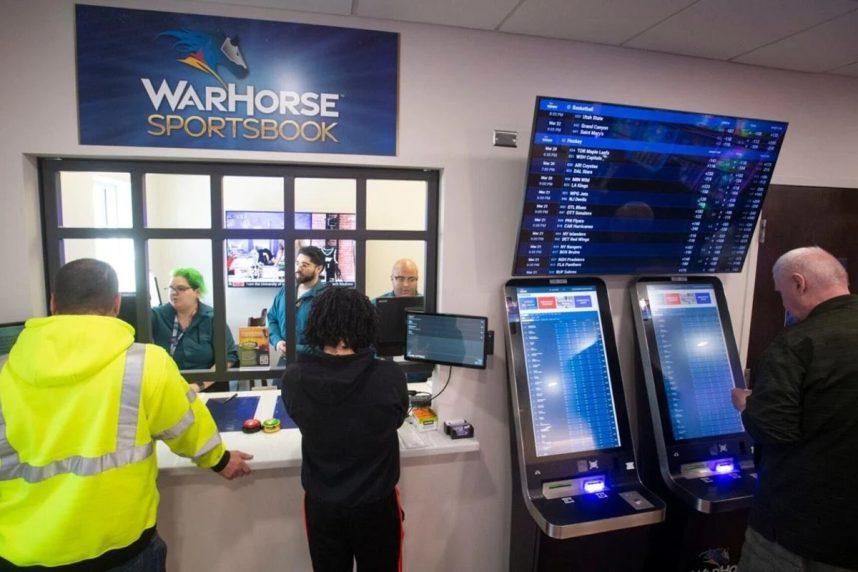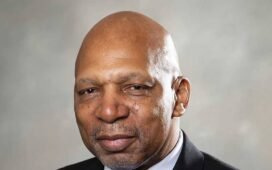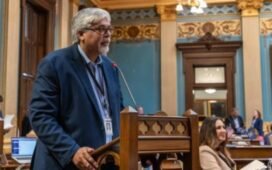Posted on: August 1, 2024, 09:19h.
Last updated on: August 1, 2024, 09:19h.
Nebraska lawmakers and gaming industry stakeholders gathered this week in the Lincoln capital to discuss the pros and cons of expanding sports betting to the internet. It quickly became apparent that the issue remains polarizing.

The Nebraska Legislature is amid a special session called by Gov. Jim Pillen (R) to find ways to ease property tax burdens on homeowners. State Sens. Eliot Bostar (D-Lincoln) and Terrell McKinney (D-North Omaha) think allowing online sports betting is one viable solution.
Nebraska is currently missing out on a $1.6 billion state industry and $32 million in annual tax revenue, which instead goes to neighboring states like Iowa, Colorado, Kansas, and Wyoming,” Bostar said before the General Affairs Committee on Wednesday. “Legalizing online mobile sports betting … could significantly boost state revenues dedicated to the property tax credit fund.”
Currently, sports betting is only allowed in person at one of the state’s commercial casinos.
Pros and Cons
Pillen has recently become supportive of mobile sports gambling. For online sportsbooks to come to the Cornhusker State, Nebraskans would need to amend their state constitution to allow such gambling through a statewide ballot referendum.
Such referendums in Nebraska can only be held on even-numbered years, meaning if the state doesn’t act quickly to get the measure on the Nov. 5 ballot, Nebraskans will have to wait until at least 2026.
The committee mulling online sports betting heard from Danny DiRienzo of GeoComply, the leading geolocation provider that works with most legal online sportsbooks in the U.S. DiRienzo, the company’s senior director of risk services, says GeoComply last year processed over a half-million location checks from an Iowa cornfield just across the Nebraska border.
“I don’t know if this is the busiest cornfield in the state, in the U.S. I suspect it is. I would submit that is not organic Iowa sports betting traffic. That is very likely all related to Nebraskans crossing the border to place a legal wager,” he said.
Tom Osborne, the legendary coach of the Nebraska Cornhuskers football team who led the program to three national titles in the 1990s, remains an outspoken critic of online sports gambling. Osborne, who’s become a political operative since exiting collegiate sports, questioned Bostar’s lofty tax revenue projections.
If all of the revenue that I hear are going to Iowa was that beneficial, you would think that Council Bluffs would look like Abu Dhabi. It doesn’t,” Osborne said.
Even if $32 million a year was a realistic online sports betting tax benefit, gambling foe Pat Loontjer, a political activist nicknamed the “Grassroots Grandma,” says that would do little to help homeowners. Nebraska collected $5.3 billion in property taxes last year.
Consumer Protections
Pillen thinks online sports betting would do more than just help marginally with property taxes. The governor says people who wish to bet on sports online are already doing so on offshore, unregulated websites that provide no consumer safeguards.
We’re already absorbing the societal and social costs of having a gambling population that has access to gambling at their fingertips. We already are. We’re just not getting any of the benefits,” Pillen said.
The country’s largest sportsbooks — DraftKings, FanDuel, BetMGM, and Caesars Sportsbook — earlier this year mulled funding an initiative to place an online sports betting question before voters in November. But the books said polling suggested the outcome would be close, and with a campaign likely to cost around $7 million, they folded on the initiative.















